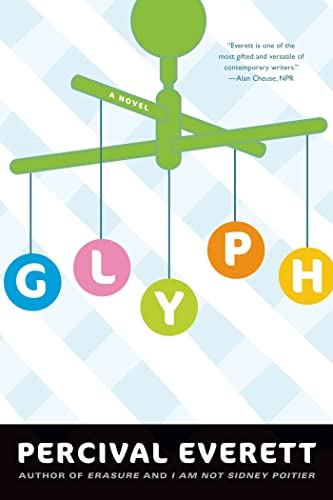There is nothing better than great satire, especially a great satire of the literary criticism of the 1960s and 1970s - the kind of satire that has you laughing out loud at conversations between Bruneau and Thales (Bruneau: Would you like some water? Thales: Very funny.), God and Barthes, Wittgenstein and Russell, and many others.Glyph, according to its cover, is a novel, but the book is much more than that. There are tidbits of anatomically themed poetry, literary theory, and seemingly random dialogues wrapped around the central text, which are the memoirs of Ralph, age four, reminiscing about his infancy. Ralph is no ordinary child; he is gifted, although no one realizes it, since he will not talk. Then Ralph one day writes a note to his mother. He has a gift for language, which he displays through reading and writing, not speaking. Incidentally, the first book he read was not written by A. A. Milne - it was by Wittgenstein.Ralph has an interesting childhood - his father is a "postructuralist pretender" and his mother is an artist. With the best intentions, they take Ralph to see a psychologist, the evil Dr. Steimmel, and there his adventures begin. He is kidnapped, then kidnapped from the kidnappers. Along the way, Ralph tells the reader what he really thinks of "that Derrida guy" and a whole slew of other has-beens in academic circles, always with Barthes appearing in snippets of conversation, to say, among other things, "I am French, you know."One might assume that the plot plays second fiddle to Ralph's commentaries. On the contrary, the plot is engrossing. I laughed at the satire and cried for Ralph. It was quite an emotional roller coaster, and I reveled in every minute of it. Glyph takes literature to new horizons. I highly recommend it, even if the reader has no experience with literary criticism. Sifting through the jargon for the plot is worth the trouble.




